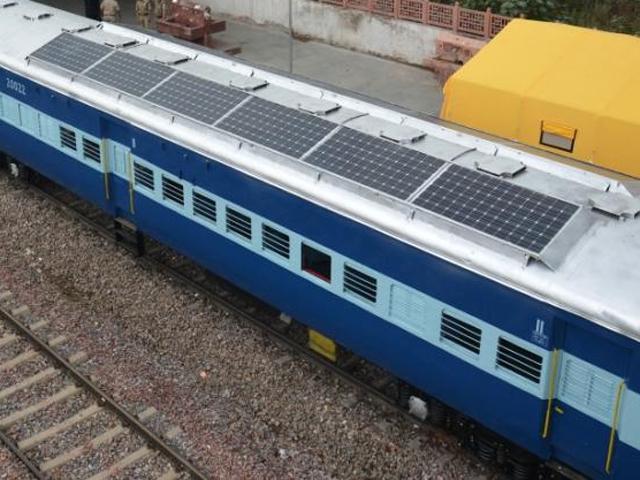As the significance of Solar Energy is gaining more and more momentum, Indian Railways has also decided to participate in the new energy revolution. The trains will now function through power generated by solar panels.
Trials have already begun to test the entire proceedings and methods with which solar panels can achieve enough energy for a train to move at a desired speed. First tests are going on single coaches, and after being able to get appropriate results, solar panels will be set up on the entire train.
Railways officials said, “While solar power will significantly bring down diesel consumption, it will also prove to be cost-effective. At present, nearly 17 units of electricity are being generated from the solar power enabled coach”
Also, Arun Arora, the Divisional Railway Manager said, “As the pilot project, one non-AC coach has been fitted with solar panels on the rooftop. The trial has been successful so far with the coach generating nearly 17 units of electricity every day. Depending on its success, decision will be taken to convert the entire train into a solar power-enabled one. Solar energy will be used to meet the electricity needs in moving trains, and reduce diesel consumption and carbon dioxide emissions. ”
We all are acknowledged by the fact that natural resources of energy are by far the best and so is solar energy and its uses. By using this, Indian Railways will save around 1.24 Lakh per coach a year. Along with this, usage of solar energy can diminish diesel consumption by up to 90,000 litres per year and will also decrease carbon dioxide emissions by over 200 tonnes.
“Harnessing solar power to power Indian Railways is more feasible and cost-effective,” said an official.
After all railways daily fuel bill will witness great amount of relaxation through this wise step.












